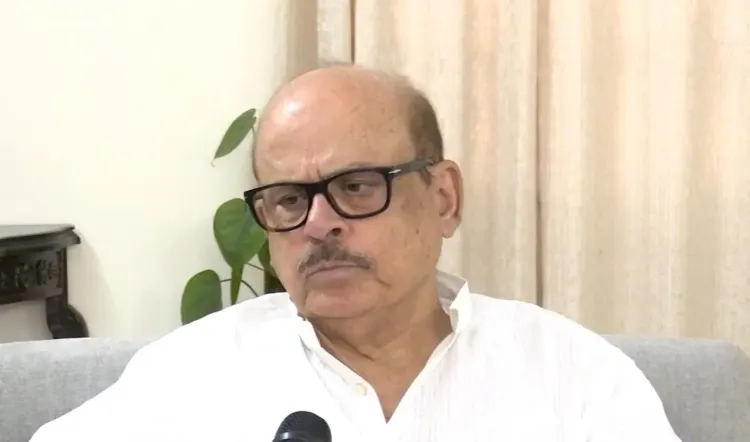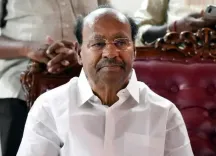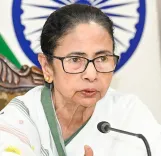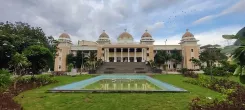Is the Diplomatic Strategy a Complete Failure? Opposition Critiques Rajnath Singh Over SCO Comments

Synopsis
Key Takeaways
- Opposition critiques Rajnath Singh's diplomatic strategy
- India's failure to isolate Pakistan internationally highlighted
- Need for urgent action against terrorism emphasized
- Concerns over Weapons of Mass Destruction (WMDs) raised
- Call for a united stand among SCO members against terrorism
New Delhi, June 26 (NationPress) The Opposition fiercely criticized Defence Minister Rajnath Singh on Thursday regarding his comments made during the Shanghai Cooperation Organisation (SCO) Summit. They accused the government led by Prime Minister Narendra Modi of failing to secure international support against terrorism and of not holding Pakistan accountable.
In response to Rajnath Singh's strong denunciation of the Pahalgam terror attack and his request for SCO members to denounce terrorism, various opposition parties, including the Congress, Shiv Sena-UBT, and the Rashtriya Janata Dal (RJD), claimed that India's diplomatic efforts have been a total failure, yielding no significant results on the world stage.
Congress leader Tariq Anwar remarked, "Our diplomatic strategy has utterly collapsed. Despite our assertions, we have not managed to isolate Pakistan on an international level. Pakistan holds influential positions within the UN Security Council, including Vice-Chair of the Counter-Terrorism Committee and chairing the Taliban Sanctions Committee. These facts are more telling than any rhetoric. It's disappointing that India lacks global allies in its fight against terrorism."
Shiv Sena-UBT spokesperson Anand Dubey also criticized Rajnath Singh, questioning the inaction following the Pahalgam terror attack.
"More than two months have passed since the terrorist incident in Pahalgam, yet the perpetrators remain free. Rajnath Singh is our Defence Minister, with a primary duty of ensuring national security. Why hasn’t prompt action been taken? Why wasn’t he present on the ground immediately after the event?" Dubey stated.
He further criticized the operational style of the BJP-led government:
"There’s no democracy under the BJP. It operates like a monarchy, ruled by two individuals. Rajnath Singh obeys orders without question. We expect him to act as India’s Defence Minister rather than merely as a BJP representative. Just as Chanakya advised Chandragupta to safeguard India’s borders, we anticipate our Defence Minister to offer genuine strategic insights, not just political speeches."
RJD leader Manoj Jha provided a broader critique of India's foreign policy trajectory:
"There is nothing novel in Rajnath Singh's statements. Each time an incident occurs, we hear the same rhetoric. What we require is self-reflection. Why do we seem diplomatically isolated? Who stands with us today? We have turned diplomacy into a spectacle—an event for headlines—and lost the strategic depth we once possessed."
Earlier, during his address to fellow SCO Defence Ministers, Rajnath Singh stressed the pressing need for the organization to categorically denounce terrorism in all its manifestations, specifically referencing the Pahalgam attack that resulted in the deaths of several Indian security personnel.
"Any act of terrorism is criminal and unjustifiable, irrespective of its motivation, location, or those who perpetrate it. SCO members must unambiguously condemn such malevolence," he urged.
Mentioning India’s Operation Sindoor, launched on May 7, 2025, the Defence Minister described it as a pre-emptive measure aimed at dismantling cross-border terror networks, with the attack pattern resembling previous assaults by the Lashkar-e-Taiba (LeT), a Pakistan-based terrorist group.
"We reiterate the necessity of holding accountable the perpetrators, organizers, financiers, and sponsors of abhorrent acts of terrorism, including cross-border terrorism, and bringing them to justice," he stated.
He also cautioned about the rising peril of Weapons of Mass Destruction (WMDs) falling into the hands of non-state actors and terror organizations, advocating for unified and decisive action from SCO members.
"Peace and prosperity cannot exist alongside terrorism or the spread of WMDs. The greatest challenges in our region arise from radicalization, extremism, and a growing trust deficit," he urged, calling for members to reject double standards and adopt a clear, collective stance.
"Certain nations utilize cross-border terrorism as a tool of State policy and provide shelter to terrorists. There should be no room for such hypocrisy. The SCO must unequivocally identify such nations without hesitation."







